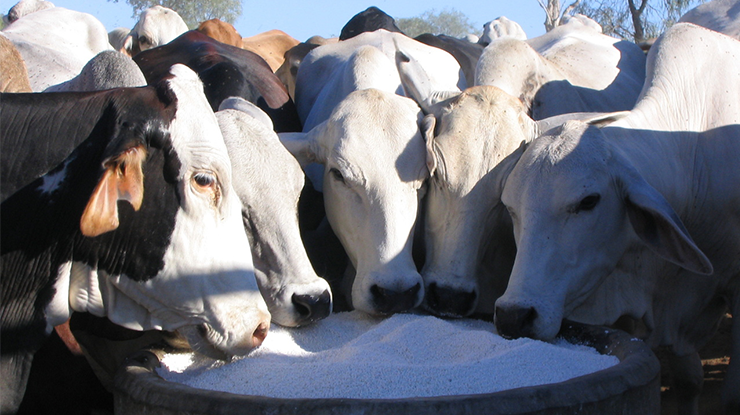
Northern beef producers can sign up for MLA’s 2020 Phosphorus Challenge, an initiative to benchmark the importance and impact of phosphorus (P) supplementation on industry productivity.
Following the highly successful pilot program in 2019 involving 68 properties, the 2020 Phosphorus Challenge is seeking 105 northern beef producers to get involved – 35 each in Queensland, the NT and WA. It will lead to an assessment of the P status of northern herds and help demonstrate that supplementation provides a cost benefit.
To be eligible, producers must be able to:
- yard stock at a time nominated for sampling OR can organise a technician, extension officer or vet to collect the samples during routine husbandry practices before the end of May
- have adequate stock handling equipment, such as a vet crush
- have young breeders, heifers OR steers on a good plane of nutrition.
Producers should also meet at least two of the following criteria:
- have cattle grazing in a known P-deficient region OR an old cropping paddock
- steers/heifers achieving annual growth of less than 120kg or a record of poor reproductive performance
- understand they’re managing P-deficient country and feed P (but want to know if supplementation is sufficient)
- new to the industry and keen to manage any P deficiency to improve production.
Interested producers will need to meet criteria to ensure blood sampling is consistent across all mobs. Samples must be collected between February and June 2020 (depending on seasonal conditions). Once collected, blood samples need to be sent to the laboratory for analysis.
Participating producers will receive the following (valued at $313):
- blood sampling kit (enough for 20 samples)
- faecal sampling kit
- free postage of kits and samples
- sampling instructions
- analysis of results.
Ongoing investment for P supplementation research continues to validate and refine previous findings on the physiology and production benefits.
“Phosphorus deficiencies may be present in unexpected areas, such as old cropping country in the Brigalow-Belah belt,” Dr Nigel Tomkins, MLA Grassfed Productivity Program Manager, said.
“Recent trials have clearly shown the levels of P in the blood closely mirror the amount ingested; especially when animals have a high demand due to growth, lactation or pregnancy.
“There’s demonstrated value in obtaining blood samples to determine the P status of grazing cattle. In most cases, producers only need to establish the P status of a paddock once.”
How to get involved
Submit your application to Liz Allen by 21 February: .







